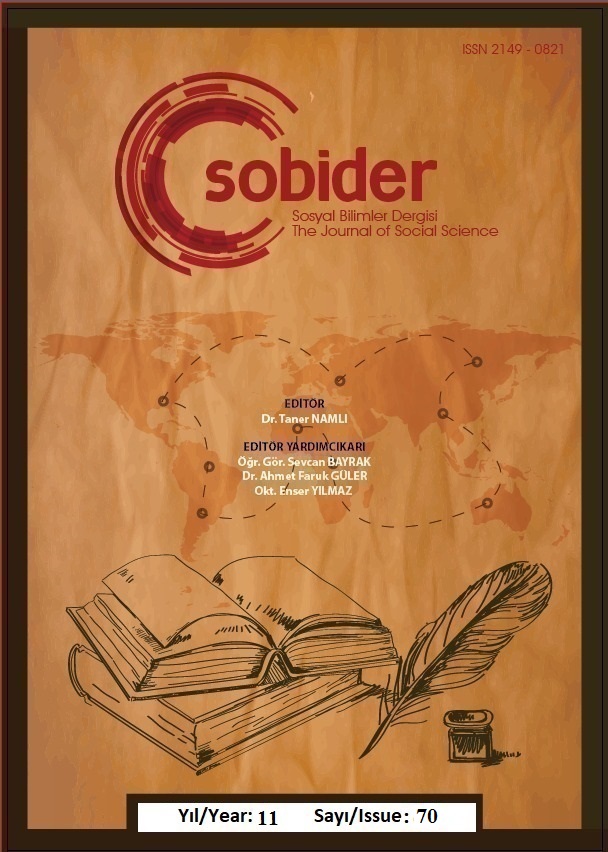THE RELATIONSHIP BETWEEN THE ORGANIZATIONAL CHANGE CYNISM, AND THE WORK-LIFE BALANCE OF THE TEACHERS AND SCHOOL ADMINISTRATORS
Author :
Abstract
The purpose of this study is to determine the work-life balance and organizational change cynicism levels of teachers and school administrators working in preschools, primary schools, middle schools, and high schools in Uşak province and its districts. Furthermore, it aims to assess the cynicism levels across the behavioral, perceptional, and cognitive sub-dimensions. Finally, it seeks to identify the relationship between work-life balance and the change cynicism. The study formed a research group using a purposive sampling method, consisting of a total of 255 participants, including 200 teachers, 29 vice principals, and 26 principals working in preschools, primary schools, middle schools, and high schools in Uşak province and its districts. The research model is a correlational survey model. The "Organizational Change Cynicism Scale," developed by Helvacı and Çavdar (2017), was used to determine the organizational change cynicism level of the study group, while the "Work-Life Balance Scale," developed by Taşdelen Karçkay and Bakalım (2017), was used to determine work-life balance. The data is analyzed using the SPSS 18.0 statistical program. Independent samples, descriptive statistics, ANOVA, t-test, one-way analysis of variance, and correlation analysis tests were employed for data analysis. We observe that the work-life balance levels of school administrators and teachers are high. Regarding the change cynicism we found that the overfall perception is low. The cognitive cynicism and behavioral cynicism are at low levels, while the perceptional cynicism is at a moderate level. As a result of the conducted research, we observed that there is a significant negative relationship of low level between work-life balance and change cynicism among school administrators and teachers.
Keywords
Abstract
The purpose of this study is to determine the work-life balance and organizational change cynicism levels of teachers and school administrators working in preschools, primary schools, middle schools, and high schools in Uşak province and its districts. Furthermore, it aims to assess the cynicism levels across the behavioral, perceptional, and cognitive sub-dimensions. Finally, it seeks to identify the relationship between work-life balance and the change cynicism. The study formed a research group using a purposive sampling method, consisting of a total of 255 participants, including 200 teachers, 29 vice principals, and 26 principals working in preschools, primary schools, middle schools, and high schools in Uşak province and its districts. The research model is a correlational survey model. The "Organizational Change Cynicism Scale," developed by Helvacı and Çavdar (2017), was used to determine the organizational change cynicism level of the study group, while the "Work-Life Balance Scale," developed by Taşdelen Karçkay and Bakalım (2017), was used to determine work-life balance. The data is analyzed using the SPSS 18.0 statistical program. Independent samples, descriptive statistics, ANOVA, t-test, one-way analysis of variance, and correlation analysis tests were employed for data analysis. We observe that the work-life balance levels of school administrators and teachers are high. Regarding the change cynicism we found that the overfall perception is low. The cognitive cynicism and behavioral cynicism are at low levels, while the perceptional cynicism is at a moderate level. As a result of the conducted research, we observed that there is a significant negative relationship of low level between work-life balance and change cynicism among school administrators and teachers.





